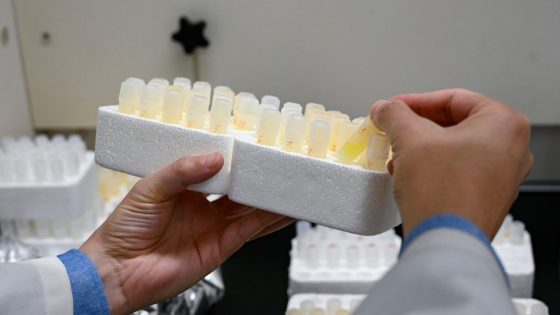A recent Harvard Medical School study highlights a potential link between lithium levels and Alzheimer’s disease, sparking hope among advocates on Long Island. This groundbreaking research may pave the way for earlier detection and innovative treatments for this devastating condition.
- Harvard study links lithium to Alzheimer's hope
- Early detection and new treatments anticipated
- Caution advised against self-medication with lithium
- Need for rigorous clinical trials emphasized
- Alzheimer's prevalence projected to rise significantly
- Previous research suggests lithium's potential benefits
Conducted over seven years, the study reveals that lithium orotate could reverse Alzheimer’s-like changes in mice, offering a promising avenue for future human trials. As Tori Cohen from the Long Island Alzheimer’s and Dementia Center noted, this discovery is “the most hopeful thing that we’ve had in a while,” emphasizing the urgent need for continued research.
With over 7 million Americans aged 65 and older affected by Alzheimer’s, the implications of this study are significant. However, it’s crucial to approach these findings with caution. Should individuals start taking lithium supplements? Experts warn against this, as the research is still in preliminary stages. Here are some recommendations:
- Consult a healthcare provider before considering any supplements.
- Stay informed about ongoing clinical trials related to Alzheimer’s treatments.
- Maintain a healthy lifestyle to support brain health.
As research progresses, it’s vital for the medical community to validate these findings through rigorous clinical trials. Staying engaged in Alzheimer’s research could lead to breakthroughs that change lives.
















![[Adobe Stock]](https://news.faharas.net/wp-content/uploads/2025/07/Ketogenic-Diet-Boosts-Brain-Blood-Flow-by-22-and-BDNF-230x129.jpg)















